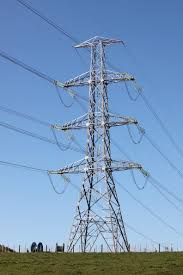The Transmission Company of Nigeria (TCN) has disclosed that it spent over N8.8 billion in the past 11 months repairing transmission towers vandalised across the country.
Sule Abdulaziz, the Managing Director of TCN, revealed this at the quarterly power sector working group meeting held in Abuja on Wednesday. Abdulaziz, represented by Olugbenga Ajiboye,
Executive Director of Transmission Service Provider, highlighted the devastating impact of persistent vandalism on the nation’s power infrastructure.
He noted that between January 13 and November, a total of 128 transmission towers were destroyed by vandals and bandits.
“Till date, we have spent about N8.8 billion, by our estimation, to put them back to full and functional use,” Abdulaziz said.
The TCN boss lamented that despite apprehending and handing over vandals to the police, the suspects often regain their freedom on bail due to misclassification of their crimes as theft instead of vandalism.
“If they are charged for vandalism, they cannot be bailed, but this is where we are. So many of them have been arrested, but each time they will be bailed because police often incident their cases as that of theft,” he stated.
Abdulaziz cited the challenges faced during the restoration of the Shiroro-Mando-Kaduna transmission line, where contractors required military escorts to work in the affected areas.
“In some cases, they [security escorts] would tell us we could only work for two hours in a day. In other instances, they would say it was not safe to move. How do we deliver electricity to Nigerians under these circumstances?” he queried.
In response to the challenges, the Minister of Power, Adebayo Adelabu, represented by Adedayo Olowoniyi, Chief Technical Adviser, announced plans to provide electricity to 50 million Nigerians by 2030.
Adelabu said the federal government is collaborating with the World Bank and the African Development Bank (AfDB) under “Mission 300,” an initiative aimed at delivering electricity to 300 million Africans, with Nigeria as a major beneficiary.
“The Compact document will be signed by our President, Asiwaju Bola Ahmed Tinubu, in Tanzania in January 2025. Nigeria has a large population that is without electricity, and this is a great opportunity for us to be part of this process,” Adelabu said.
He added that the project would be executed through a mix of home solar systems, mini and micro grids, and grid extensions, emphasizing the need for private and public sector participation.
“The reality is that it is not feasible to extend the grid to all Nigerians due to funding constraints and commercial viability.
However, electricity delivery remains a fundamental right and a dividend of democracy,” he added.
Adelabu said areas where grid extension is not feasible would initially benefit from home solar systems as part of efforts to bridge the electricity gap.
Do you want to share a story with us? Do you want to advertise with us? Do you need publicity for a product, service, or event? Contact us on WhatsApp +2348183319097 Email: platformtimes@gmail.com
We are committed to impactful investigative journalism for human interest and social justice. Your donation will help us tell more stories. Kindly donate any amount HERE




